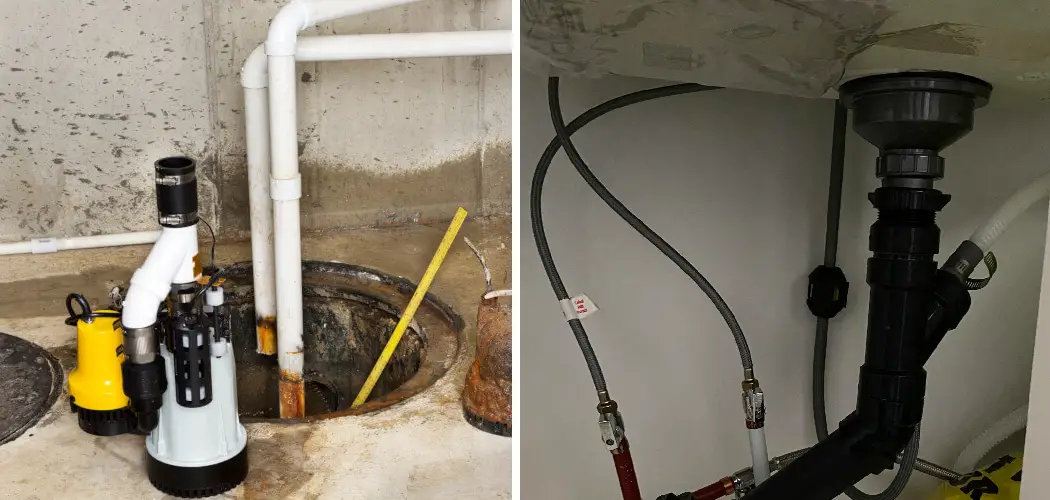
How to Deal with Septic Smell in Your Home's Kitchen and Bathroom
A foul odor emanating from your kitchen or bathroom can be a distressing experience, often signifying an underlying issue with your home's plumbing or septic system. While the source of the smell may seem mysterious, understanding the common causes and taking the right steps can effectively eliminate the odor and restore a pleasant atmosphere to your home. This comprehensive guide provides practical insights and solutions to address the septic smell in your kitchen and bathroom.
Identifying the Source of the Septic Smell
Pinpointing the origin of the odor is crucial for effective problem-solving. Here's a step-by-step approach:
1. Determine the Location
Is the smell strongest in the kitchen, bathroom, or both? This can narrow down the potential causes.
2. Analyze the Smell
The nature of the odor can be indicative of the underlying problem:
- Rotten eggs: Often points to a sewer gas leak, which can be dangerous.
- Sewage-like smell: Suggests a clog or blockage in the drain system.
- Musty, damp smell: Could indicate a leak or moisture issue in the plumbing system.
3. Check for Visible Signs
Look for any visual cues:
- Water pooling or standing water: A potential sign of a leak or blockage.
- Cracks or damage in pipes, drains, or fixtures.
- Discoloration or rust on pipes or fixtures.
Common Causes of Septic Smell in Kitchens and Bathrooms
The most common reasons for septic smells in these areas include:
1. Drain Clogs and Blockages
Hair, grease, food particles, and other debris can build up in drainpipes, leading to clogs that trap waste and create foul odors. This is particularly common in kitchen sinks and bathroom drains.
2. Dry P-traps
P-traps are curved sections of drainpipes filled with water that act as a barrier against sewer gas. If the water in a p-trap evaporates, sewer gas can escape into your home. This is more likely to occur in infrequently used drains, such as guest bathrooms.
3. Leaking Pipes and Fixtures
Cracked or leaking pipes can allow sewage to seep into your home, resulting in a septic smell. Similarly, leaky faucets, toilets, or showerheads can create conditions for mold and mildew growth, contributing to a musty odor.
4. Overflowing Septic Tank
If your septic tank is full, waste can back up into your plumbing system, leading to a strong sewage smell. This is a more serious issue that requires immediate attention.
5. Poor Ventilation
Inadequate ventilation in your bathroom or kitchen can trap odors and allow them to linger. Make sure your exhaust fans are working properly.
Solutions for Eliminating Septic Smell
Once you've identified the likely source, you can implement the following solutions:
1. Clear Drain Clogs
Use a plunger or drain snake to dislodge clogs in sinks, tubs, and showers. You can also purchase commercially available drain cleaners, but be sure to follow the instructions carefully and avoid using them excessively as they can damage pipes.
2. Replenish P-traps
Run water in the drain for a few minutes to ensure the p-trap is full and working properly. To prevent evaporation, you can pour a cup of mineral oil into the drain after each use.
3. Fix Leaky Pipes and Fixtures
Contact a licensed plumber to inspect your pipes and fix any leaks. They can also help identify any underlying plumbing problems contributing to the odor. This is an essential step as leaks can lead to further damage and costly repairs.
4. Maintain Your Septic System
Regularly pump your septic tank to prevent overflows. Avoid flushing non-biodegradable items down the toilet, such as paper towels, wipes, and medications. Consider using septic tank additives to help maintain the system's efficiency.
5. Improve Ventilation
Ensure your bathroom and kitchen exhaust fans are working properly and run them for at least 15 minutes after showering or cooking. Open windows for fresh air circulation, especially when there is a noticeable odor.
6. Natural Odor Eliminators
Place bowls of baking soda or vinegar in areas where the smell is strongest. These ingredients can help absorb and neutralize odors. Boiling a pot of water with lemon juice or vinegar on the stove can also temporarily mask the smell.
Preventing Future Septic Smells
Taking preventative measures can help you avoid future issues:
- Avoid pouring grease or oil down drains. This can solidify and cause clogs.
- Use a strainer in kitchen sinks to catch food particles.
- Regularly clean shower drain covers and bathroom sink drain stoppers to remove hair and debris.
- Maintain proper ventilation in your home.
- Schedule regular septic tank inspections and pumping. The frequency depends on your household size and usage.
When to Call a Professional
If you're unable to identify the source of the smell or your attempts to fix it have been unsuccessful, contact a licensed plumber or septic system specialist. They can conduct a thorough inspection, diagnose the problem, and recommend the appropriate solutions. Don't hesitate to seek professional help, especially if you suspect a sewer gas leak or an overflowing septic tank, as these situations can pose health risks.
Conclusion
Addressing a septic smell in your home requires a systematic approach. By understanding the common causes, identifying the source, and implementing the appropriate solutions, you can effectively eliminate the odor and create a more pleasant and healthy living environment. Remember, prevention is key. Maintaining proper hygiene, regular cleaning, and routine inspections of your plumbing and septic systems can go a long way in preventing future problems. If you're experiencing persistent issues or have concerns about the safety of your plumbing or septic system, don't hesitate to consult a professional for assistance.
0 comments:
Post a Comment
Note: Only a member of this blog may post a comment.